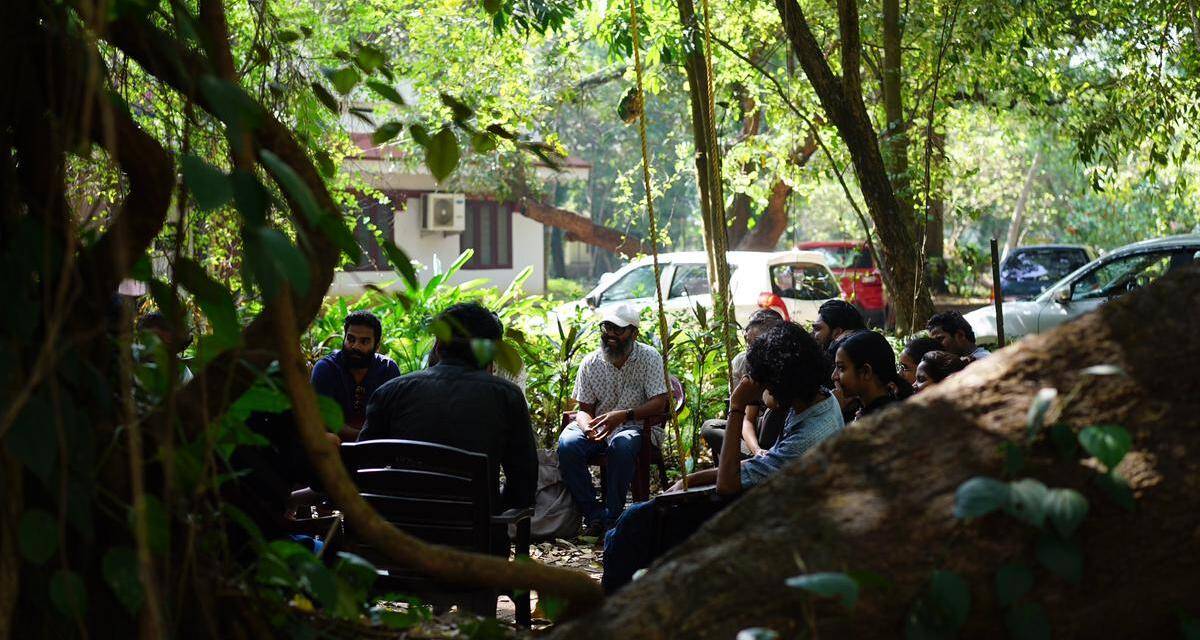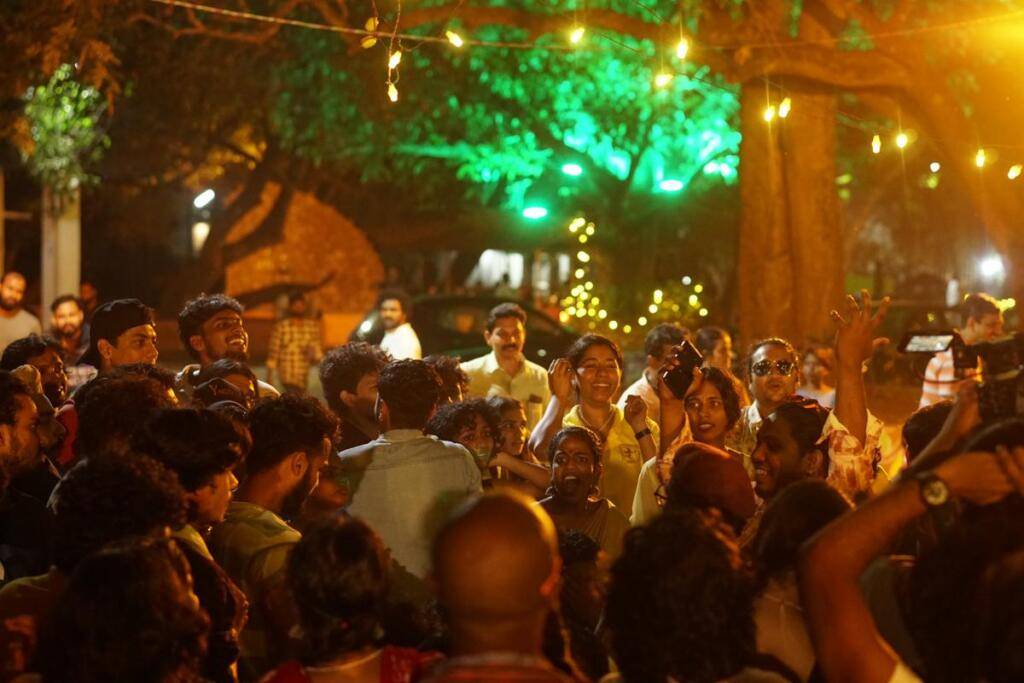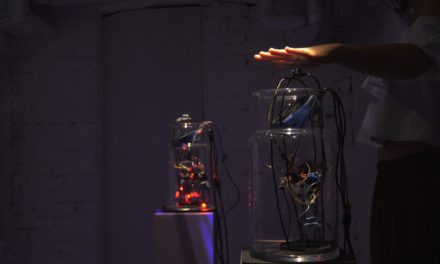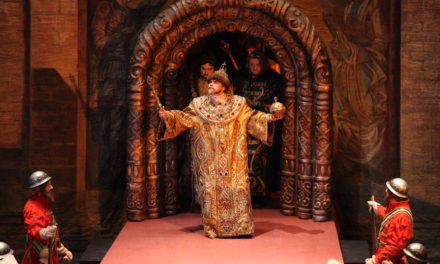The man moved through the trees like an evening breeze. He mumbled chants to the leaves. His talking drum crooned melodies to the birds. “Feel free to move around,” he urged the audience, who shifted uncomfortably on the newspapers spread on the ground like mats.
Elikem Kunutsor, the performer of the night, almost blended into the woods on the sprawling School of Drama (SOD) campus in Thrissur, Kerala, that he chose as his arena. This site-specific work was one of the many unconventional performances to happen at the International Festival of Theatre Schools, a carnival of pedagogy, theatre, and ecology hosted by the school. In its second edition now, the event is an initiative to explore the intersection of theatre and ecology within the context of discourses around theatre training methodologies and praxis.
Malayalam theatre still has that romanticism with the theatre of the 1940s to the 1980s, which is still considered the most revolutionary. There were a lot of social plays, but today the context of what makes a play social is being questioned, especially after the pandemic, says Abhilash Pillai, the festival director and director of SOD. “There were talks about why dinosaurs and certain animals and plants have gone extinct, and, maybe, something must have gone wrong. Also, with the growing number of viruses in this world, at any moment, we humans can disappear.”
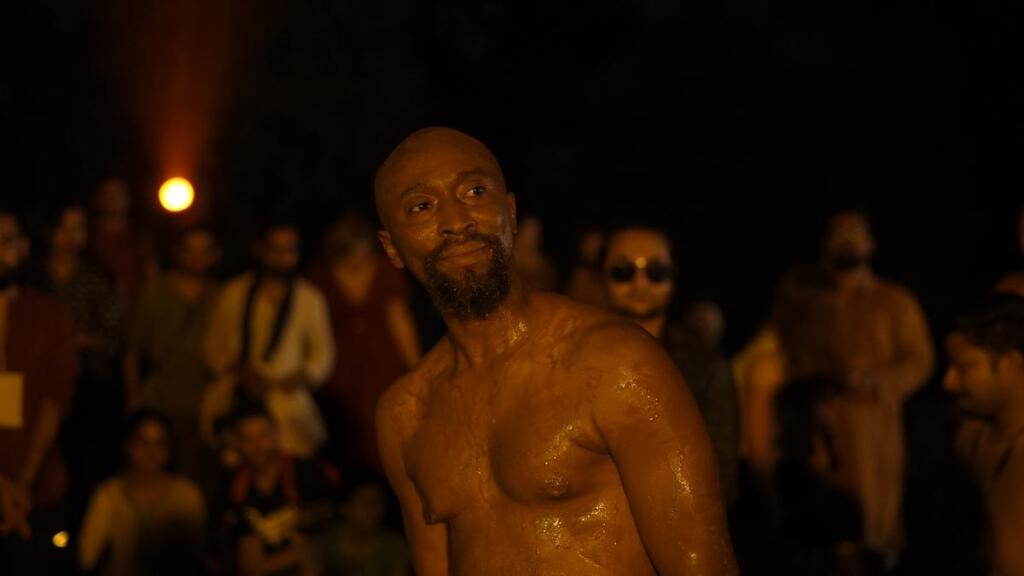
Elikem Kunutsor performing at the International Festival of Theatre Schools. Photo Credit: The Hindu
Workshops and performances
In this atmosphere, words and performances became one. A performance just appeared out of nowhere when Maya Rao, the participating pedagogue and practitioner, and Elikem met at the Ramanujam Studio Theatre the next day. Both just started moving together from the chairs they were sitting on and the two performers started conversing with their bodies. There were workshops on breathwork, acting, performance-making using physicality, and the art of costume-making by not increasing carbon footprint.
Writer and philosopher Sundar Sarukkai, Sara Matchett, Associate Professor at the Centre for Theatre, Dance and Performance studies at University of Cape Town, South Africa, theatre director Neelam Mansingh, and Jane Collins, Professor at Wimbledon College of Arts initiated us into new realms of thought. These included the paradigm shift in seeing nature and culture as binaries.
In this thought-provoking atmosphere that pushed contemporary performance practices, we also travelled back in time by watching traditional art forms such as Thirayattam and Padayani – they were not squeezed into a proscenium. Instead, they were given their natural open-air setting. We spent chilly nights watching the glow from the fire-sticks used by the Padayani performers.
We spent wee hours of the morning in Kerala Kalamandalam to see how the traditional arts school functioned. Six-year-old percussion students, with sleep in their eyes, practiced hitting wooden sticks hard on the stones to get their rhythm. Some of the overseas artists found the ecologically sensitive setting and traditional architecture as moving as the art forms.
Bonding with nature
In the midst of all this, we also got to date trees! As part of the Winter Production camp, the students had developed a Y Not App under the supervision of theatre professional Vishnupad Barve, the concept director. Like a dating app, one has to swipe right on a tree in the campus.
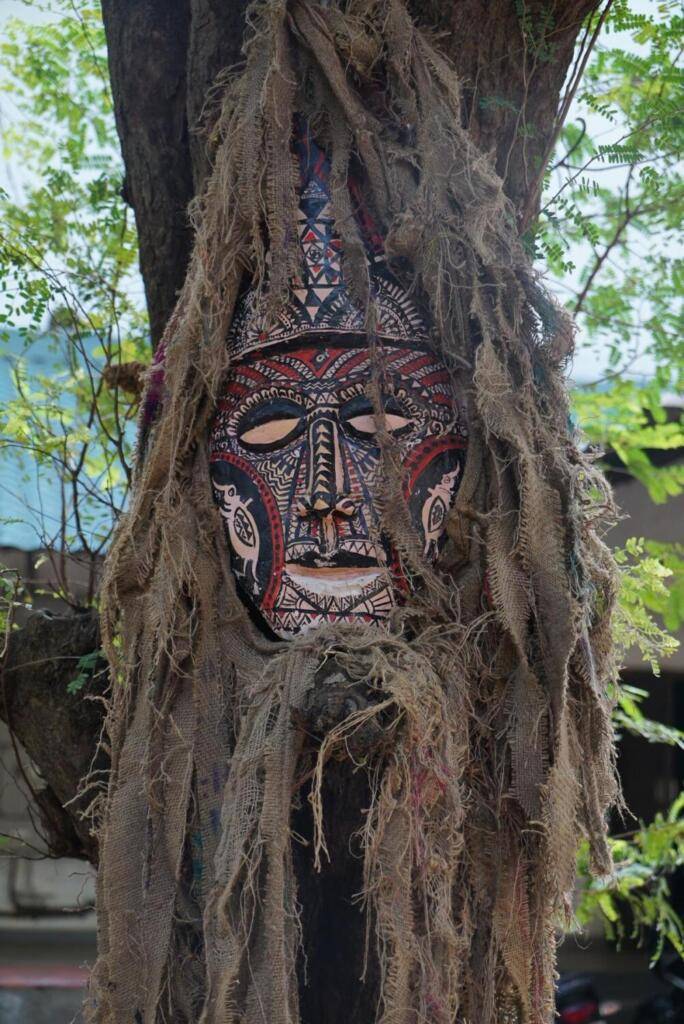
As part of the Winter Production camp, the students had developed a Y Not App to bond with a tree on campus. PC: The HIndu
This writer’s multi-branched magnificent date for the evening was Haal, a gorgeous banyan that has witnessed many generations of the school. Upon reaching the spot, I could see a blanket placed on a stone and on top of it a greeting card with a leaf stuck on it reading: “It’s a connection we treasure.” Yours truly took a while to warm up to Haal. But after 15 minutes, I could not leave the spot. My legs were on the branches, urging me to climb and explore Haal. The festival truly did attempt to make humans encounter Nature both outside and within.
This article was originally posted on thehindu.com on March 5, 2024, and has been reposted with permission. To read the original article, click here.
This post was written by the author in their personal capacity.The opinions expressed in this article are the author’s own and do not reflect the view of The Theatre Times, their staff or collaborators.
This post was written by Parshathy J. Nath.
The views expressed here belong to the author and do not necessarily reflect our views and opinions.

